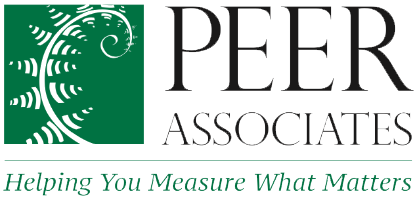All PEER products are tailored to meet your specific needs
Selected examples include:
Executive Summaries
Many clients prefer shorter, summary-style reports for sharing with key stakeholders and the public.
Outline of Findings
Most of our report products are preceded by an outline document designed to promote collaborative meaning making. Often the outline is sufficient as a final deliverable.
Peer-reviewed Articles
We occasionally write up evaluation results for publication in peer-reviewed journals.
Presentations and Workshops
Sometimes a structured conversation is more useful than a printed report.
Journalistic Case Studies
Results may be most useful when packaged for everyday readers.
Formal Public Reports
Comprehensive final reports tend to be needed for larger, multi-year, or multi-site projects.
Literature Reviews
Insights from existing research can often complement or sometimes be more useful than generating new local data.
Narrative Data Summary Reports
Sometimes the most efficient format for a deliverable can be a simple presentation of all evaluation activities, data, and findings.
Logic Models
This tool aligns internal stakeholders, communicates succinctly to external audiences, and provides a starting point for evaluation.
Toolkits
These can systematize future evaluation and build internal capacity.
“I work with lots of programs with evaluation components, including other MSPs, and this is one of the best evaluations I’ve seen. You ask good questions and tailor ways to measure them and improve on them annually. You have good instruments and make sure to link PD practice to measures.”











